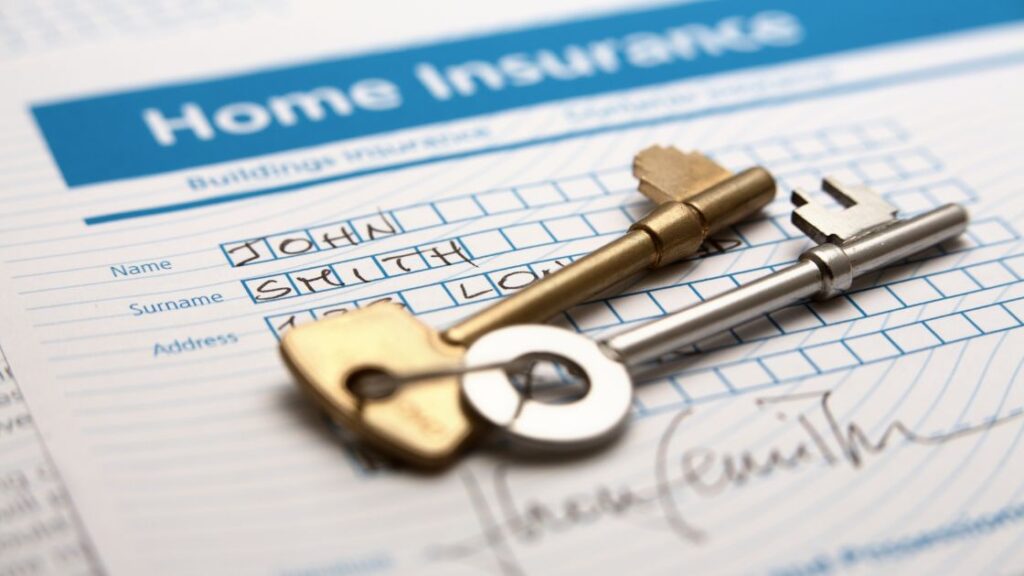If the homeowner has insurance and you have reason to believe that the homeowner’s negligence caused your injury or property damage, you can claim from their insurance company. If the homeowner does not have insurance, you must sue them directly.
To make a claim, you need to find out what insurance company the homeowner has. No registry or legal record is telling you which insurance company they have. So if the homeowner refuses to provide the name of their insurance company, you will have to sue them to get the information.
After finding out which company they are insured with, you should file a claim against them as soon as possible. The insurance company must not file a late-filed claim as they may believe it is fake or that too much time has passed to investigate the incident. Some states require the insurance company to provide proof that too much time has elapsed, while other states do not. After you file a claim, the insurance company will assign someone to investigate the case.
How to provide evidence for your claim?

You may think that filing the claim is the only thing you have to do to get compensation, but unfortunately, that is not true. Since the insurance company doesn’t want to pay the damages or medical bills from your claim, they will try to refute this. There are things you can do to prove your claim. Below are some steps you can take to fulfill your claim.
- Take photos or videos of your injury or property damage. You can also photograph anything that could have caused injury or property damage, such as B. Unsafe electrical circuitry that caused electroshock therapy.
- obtain testimonies. If the claim goes to court you also approach their contact information.
- Get copies of your medical records related to the injury you sustained.
Here are some steps to keep in mind when filing a claim against someone else’s home insurance.
1. Obtain the homeowner’s insurance information

If possible, you should obtain insurance information from the homeowner at the time of your accident. If this is not possible, you can later ask if you were injured at a friend or family member’s home. or you can rely on your lawyer to attain the homeowner’s insurance evidence for you. However, to make a claim you must know which insurance company to contact and be able to provide the policy number under which you are applying for coverage.
After getting the homeowner’s insurance information, your next step is to contact the homeowner’s insurance company. You will most likely have to go through a series of prompts over the phone, but you should eventually be able to speak to a claims representative.
Once you reach the claims representative, provide the details of your accident and no more. Stick strictly to the facts. Don’t make assumptions, don’t exaggerate what happened, and don’t let the claims adjuster convince you that you may be responsible for your injuries. Again, your lawyer is best placed to take this step for you.
2. Follow your doctor’s medical advice
Since you are considering getting someone else’s homeowners insurance, we’re assuming you’ve already seen a doctor (if you haven’t already, you should do so immediately). If you have a liability claim against someone else’s home insurance, you must follow your doctor’s medical advice. Go to all your appointments, do your lab work, fill out any prescriptions your doctor gives you, and make sure you know the next steps for your recovery.
3. Keep your data and keep your declaration to yourself
If you collect medical records related to your injury, keep them in a file that you can share with your attorney. In addition, you may want to talk to your friends and acquaintances about your accident.
How to fulfill a home insurance lawsuit in 2022
If your home or personal belongings are damaged or stolen, you will need to file a claim with your home insurance.
Homeowners insurance covers your home and is owned in the incident of property damage or robbery. If your home is damaged by accidental fire or severe storm, or property is stolen from your car or home, you must file a homeowners insurance claim to receive this coverage.
Before filing a homeowners insurance claim, check your policy to determine if the damage you are claiming is covered by your policy. You should also familiarize yourself with certain policy details such as your deductible and how your payout is calculated (such as replacement cost or actual cash value).
Once you know if the destruction or loss is concealed, sign a statement with your home insurance. Most insurance companies require claims to be filed within a year of the incident.
How do I pertain to a homeowners insurance statement?

If you think damage to your home or personal property is covered by your policy, contact your insurance company and make sure you have as much detail as possible about what caused the damage.
For example, if your roof catches fire due to a lightning strike and rain gets in and destroys thousands of dollars worth of personal property, make sure you include all of this in your first report. The more details you provide upfront, the fewer questions you will be asked later and the quicker your application will be processed.
The process for filing home insurance claims depends on your insurance company and the type of claim you are filing, but in general, you should do the following:
1. Report the damage to the police or analyze the damage
If your home has been broken into, the first thing you should do is to report it to the police. When filing a theft claim, you must provide your insurance company with a police report to verify the details of the crime.
Otherwise, if you’re claiming a natural disaster like a wildfire or tornado, investigate the damage before contacting your insurance company. Avoid throwing away anything that’s ruined or damaged – instead, keep it for when the insurance inspector comes by to check it all out.
2. Contact your insurance company
Contact your insurance firm and inform them about the theft. The insurance firm’s claims expert will likely notify you whether the destruction is covered by your strategy and how long you need to make the lawsuit. You may also be given a rough estimate of the amount of the claim and whether or not it exceeds your deductible. Other information – such as B. how long the process will take and whether or not you need a repair estimate for structural damage – can also be provided.
3. Complete the application forms
You then complete the claims documents that have been sent to you or provided through the company’s online or mobile claims portal. One such document is your Proof of Loss form, in which you provide your personal information, the cause of the damage, the part of your home or property you are claiming damage to, and the estimated amount of damage. You can also submit photo or video evidence of the damage at this time.
Claim forms are required by law to be mailed to you within a specified period after your first contact with the insurer. Once you have completed the required paperwork, quickly return it to your insurer to avoid delays.
4. Document everything
In the event of a claim for loss of personal property, you must provide evidence of the loss before receiving a reimbursement check. Having receipts, a list, or a home inventory confirming the value and description of damaged or stolen items will improve your chances of a full refund.
5. Carry out temporary repairs
You should ensure that openings or damage to the structure of your home do not result in further damage. If you notice a leak or hole in your home’s exterior, make temporary repairs and keep the receipts for later reimbursement from the insurance company.
6. Prepare for the adjuster
Your claim may also require a visit from the insurance adjuster, particularly for large claims involving damage to the structure of your home. The adjuster’s role is to assess the damage and confirm several details before reimbursement can be made. The inquiry may contain:
Confirmation that the cause of damage is covered by your policy
Detailed inspection of the structure of your home
Provide the appraiser with documentation such as receipts, photos, or a home inventory
If it is a liability claim, the adjuster may ask for the contact information of doctors, lawyers, or anyone familiar with the claim
A detailed discussion with you as the policyholder
7. Get estimates for repairs or remodeling from contractors in your area
Depending on the extent of the damage, you should get damage estimates from local contractors, roofing companies, or even surveyors. Estimates for repairs or remodeling from licensed contractors could give you more leverage if your insurance company understates your settlement amount.
8. Receive damage payment and make repairs
Once your claim has been approved and you and the adjuster have agreed on the settlement amount, you will receive the insurance payout. If you have a mortgage on the home, the insurance company may send two checks – one to you and one to the lender listed on the insurance policy. In the event of damage to the home structure, the lender is given equal rights of insurance review to ensure the necessary repairs are made to the property in which they have invested. Your mortgage lender will usually place this money in escrow and will release the funds for payment once the work is complete.
If you insure the personal property at replacement value, you will typically receive a check for the actual cash value of the property (its value less depreciation) and then be reimbursed the balance once you have replaced the property.
You can withhold extra money from your home insurance claim payout as long as your insurer doesn’t claim it back and you haven’t committed insurance fraud for the extra amount.
When should I apply for home insurance?
You should file a home insurance claim as soon as possible after the incident. If the damage is covered by your policy, you are expected to recover the damage in full and continue living your life as it was before the incident. However, an important question to answer before filing a claim – aside from the initial questions about whether the claim is covered or whether the amount of the claim exceeds your deductible – is whether it is worth filing a claim at all. It may not be worth making a claim that is not at least twice your deductible amount.
While this is not an ideal alternative, if you find that the amount of damage is barely more than your excess, you should instead pay for repairs or replace stolen personal items out of your pocket. It’s worth noting that filing a homeowners insurance claim can increase your insurance premiums — especially for non-weather claims like theft, vandalism, internal water damage, or mold growth.
How long does it take to pay out a homeowners insurance lawsuit?
There is no hard and fast rule as to how long an insurer can take to pay out a claim, but there may be specific timeframes they must adhere to depending on which state you live in and what insurance company you have. For example, some insurers are required to pay out claims within 30 to 90 days of approval. The quicker you submit your claim and the more information you provide, the quicker the process usually is.
Here are some variables that may affect when you receive your entitlement payout:
- How to quickly contact your insurance company and fill out the claim forms
- How quickly your claim is submitted or rejected
- Nature and scope of your claim
Most states have a limited time frame to decide whether your application will be accepted or rejected.
For example, in California, a decision must be made within 40 days. While this may seem like a long time, remember that this is the maximum number of days the insurance company can advise on. For less complicated claims – like a clear case of theft or hurricane damage – the claim is likely to be accepted much quicker.
What if my claim is denied?
While you don’t need an attorney to make a claim, you may want to contact one if your claim is denied and you’re not sure what to do next. They can usually help you contest the denial of the claim. Just remember that lawyers can be expensive and it’s possible to appeal a claim yourself – it just requires a lot more work and research on your part.
Will my home insurance increase if I make a claim?
It depends. Your prices will likely be affected by the type of claim you’re filing – not necessarily the dollar amount. But proportional to your current home insurance premium, you’re probably expecting an average increase of 7% to 10% for a first claim, according to Fabio Faschi, former property and casualty director at Policygenius.
Insurance companies are more likely to increase rates, not renew, or cancel policies after non-weather-related claims. Personal liability lawsuits are also a warning for insurance corporations. If you have one of these on your record, it can be difficult to get coverage from a standard insurance company. Claims typically stay on your file for five to seven years, although this varies by the insurance company.








